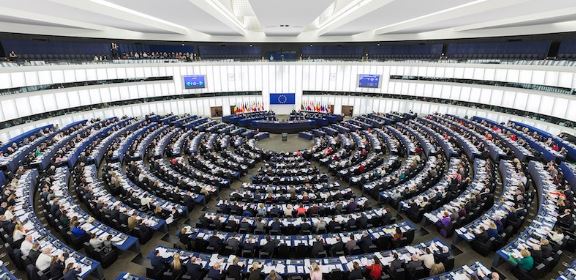Members conclude visit to Pakistan, where they assessed the country’s human rights situation.
On 19-21 September, MEPs from the European Parliament’s Subcommittee on Human Rights (DROI) visited Pakistan, which in recent weeks experienced devastating flooding. On behalf of Parliament, the members expressed their condolences for victims and their families, and their solidarity with the people of Pakistan.
During their visit, the MEPs were briefed on Pakistan’s emergency response, relief activities and its vulnerability to climate disasters. They underlined that the international community must increase its efforts to reduce global carbon emissions and help the countries suffering the most from climate change.
In other meetings, MEPs focused on the human rights situation, against the backdrop of the final round of EU monitoring of Pakistan’s preferential trade access to the EU market under the “GSP+” scheme for 2014-2033 and its preparations for an application to the next GSP system to be determined in 2024.
The EU is Pakistan’s most important export market and as a major “GSP+” country, it has committed to ratifying and complying with 27 international conventions on human rights, labour rights, sustainable development and good governance. MEPs discussed a wide range of human rights topics in their meetings with the Speaker and members of Pakistan’s National Assembly, as well as with the Chairman and members of the Senate. They also held meetings with the Minister of Human Rights, the Minister of Law and Justice and the Chairwoman of the National Commission on Human Rights. The delegation met with civil society organisations, women human rights activists and media. In these discussions, they talked about the criminal justice system, torture and the death penalty, economic and social rights, prevention of domestic violence, and the freedoms of religion and belief and the freedom of expression both online and offline.
MEPs said it was important for Pakistan to undertake timely reforms and legislative changes on human rights issues, and translating them into concrete improvements. They called for determined and structured action, including the swift adoption of laws against torture and enforced disappearances, steps to substantially reduce the number of crimes carrying the death penalty and to apply the new procedures for mercy petitions. Laws protecting journalists, eliminating obstacles to the work of civil society organisations and media, and the rights to collective bargaining and unionisation should be implemented. The delegation raised the need to prevent the misuse of blasphemy laws, by applying safeguards against false accusations. The members and Pakistani senators committed to sending a joint letter to Pakistan’s Supreme Court judges, requesting the court system, particularly at lower levels, speed up its processing of blasphemy cases. MEPs also called for decisive actions to prevent domestic violence, child labour and child marriage.
Alongside these meetings, MEPs also visited an Afghan refugee community in Kheshgi (Nowshera District), which was affected by the flooding, talking with residents about their livelihood and challenges.

















